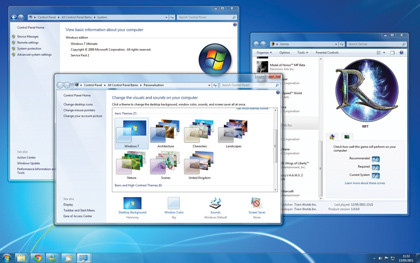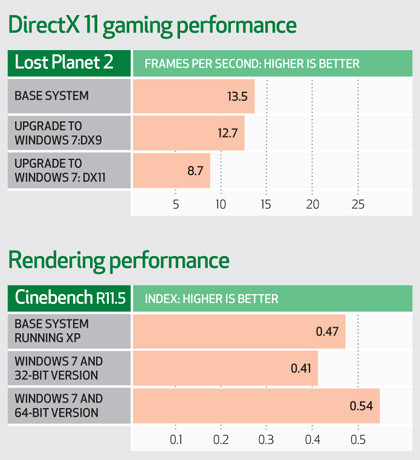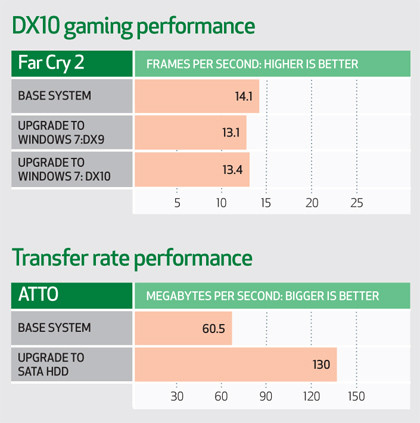Is it worth upgrading your old PC for gaming?
We benchmark old vs new to see if upgrading makes sense

Our faithful old machine was running Windows XP, which is now positively archaic. Is running a 32-bit system holding us back? You may well be upgrading older machines with Windows 7 anyway, but what will it do for your game power?
While we were at it, we decided to upgrade the storage as well. The 160GB IDE drive was a little small and we had nice SATA connectors on the motherboard doing nothing. What could an SSD do? Blazing speed, obviously - or so we thought.
Although the BIOS appeared happy, Windows was not. It simply wouldn't boot from an SSD. After initially suspecting the drives, we realised that it was the motherboard again and its lack of AHCI support. There was nothing we could do about that, so it was back to regular HDDs.
We added a SATA-based 1.5TB Seagate Barracuda, and put a fresh copy of Windows 7 on it. Lastly, we threw two 2GB memory sticks on the board. Well, why not?
Upgrading Windows cost about £75, the hard drive was £65 and the memory another £30 or so, bringing the cost of this exercise to £170, a not inconsiderable sum. And possibly more than the base rig was worth even new…
Direct results
Upgrading Windows for gaming purposes has its ups and downs. Yes, you get DX10 and DX11, which means you have all the latest shiny effects and 64-bit code. Plus you get access to a lot more system RAM. If you've got 64-bit versions of software, then you can now run them - witness Cinebench, and the little bit of extra speed it finds.
Sign up for breaking news, reviews, opinion, top tech deals, and more.
It's just as well, because the 32-bit version we used on XP actually runs slower on Windows 7. We could now run our tests under DX10 and DX11. Unfortunately, if the quest is all about speed then this is no good thing. It's far more demanding and the scores subsequently went down.
However, it turned out that switching back to the DX9 versions of the benchmarks didn't help, either. Sometimes you just can't win.
We had one last test to consider - to see what moving to a factory-fresh SATA drive and 64-bit drivers had done for our hard drive: wonders, as it transpired. We doubled the average read and write data rate, according to ATTO (though this doesn't show in the games benchmarks, of course).
Did this mean Windows would boot faster? No. In fact, it was about 15 seconds slower - now a full minute. Sometimes you could just slap Windows… Our upgraded machine at least looked modern, and it gained access to all the latest software.
In general use, the hard drive and extra memory helped to make it more responsive, but we've still not really addressed the main problem of poor gaming performance. Windows isn't a bottleneck here, then. No matter how attached you are to XP, or to DX9's slight speed edge, you can't hold back the march of time. You've got to upgrade Windows eventually, and while it'll give little improvements here and there, it'll do nothing for gaming other than frustrate you when you try to run DX10 and DX11 stuff.
Looking for the performance upgrade, then, we don't think it's money well spent here, either.

Upgrading Windows isn't cheap, which might explain why Microsoft has so much money. Our upgrade from XP means that 64-bit software and DX10 and DX11 are ours. What it doesn't do is make our system any faster, although the desktop looks nice and modern.
As ever, Windows gets more demanding. This is no performance upgrade, and if anything it only highlights the inadequacies of our box. It isn't always very good at running 32-bit software, so you might find that things actually go backwards. Still, our hard drive upgrade is a nice one; £65 brings an almost 10-fold increase in storage, as well as a doubling of the data rate.

